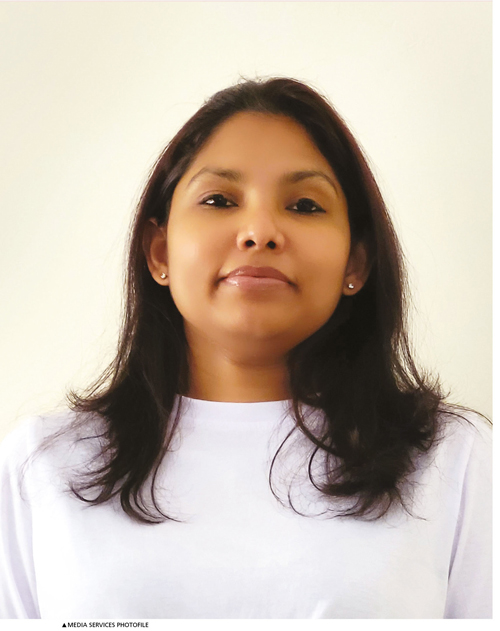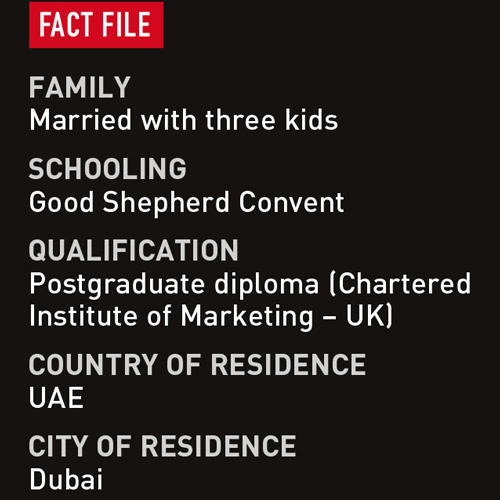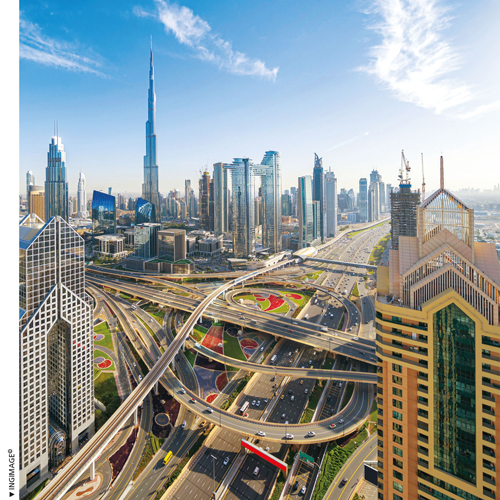LMD ALUMNI OVERSEAS
Nilusha Dias Bandaranaike

Being Sri Lankan overseas
Q: In your capacity as an LMD alumni living abroad, your thoughts on our international edition are…?
A: LMD has always captured the business essence of Sri Lanka and I’m proud to have been part of the team in the past.
I believe the international edition’s captivating content and diverse perspectives will open more doors for LMD, as well as Sri Lanka.
Q: How have you maintained a connection with your motherland while living in the Middle East?
A: My connections are maintained through social media for the most part; and of course, when I visit Sri Lanka.
Q: In brief, how do you maintain a balance between embracing the local culture and preserving your identity?
A: This has been tough because over the years, your attitude and views change, and you do embrace the local culture to some extent.
In my case, I take (or try to take) the best of both cultures – that way, we can still be Sri Lankans in Dubai.

Q: And in a nutshell, how do you perceive Sri Lanka today?
A: Sri Lanka is one of the most beautiful places on Earth, and its people make it rich with their generous attitude and smile.
The country has much to offer but we’re not taking advantage of our natural resources; nor are we trying to build a better nation.
Q: How would you describe your connection with Sri Lanka?
A: To me,Sri Lanka will always be home; although I’ve been away, the nostalgia is fulfilled when I return. It cannot be replicated elsewhere.
Q: What lessons can Sri Lanka learn from the UAE when it comes to national development and progress?
A: Sri Lanka should elect a progressive leader, bring about a change of attitudes – in terms of looking forward instead of dwelling on the past – and implement forward-thinking policies.
Q: Based on your experience of living in the UAE as well as Sri Lanka, how do you perceive the impact of globalisation today?
A: The United Arab Emirates is presently home to over 120 nationalities living within its borders, making for a very cosmopolitan society with the diversity seeping into many aspects of life in the country – such as music, food and art, for example.
This is what globalisation means in the UAE – from being a nation of pearl divers, it has become one of the most popular business hubs in the Gulf Cooperation Council (GCC).
A goal for Sri Lanka would be to become a business hub for the region. For globalisation to truly play a pivotal role in the country, we need to look at improving economic growth, education, innovation, tourism and more.

Q: In your assessment, what are some of the most effective ways to bridge the gap between different cultures and foster mutual understanding among communities?
A: Some effective ways would include creating awareness about other cultures through meet ups and discussions. Moreover, media can play a huge role in creating awareness and breaking the ice!
Q: The brain drain is a hot topic these days. Your thoughts on this are…?
A: Although Sri Lanka’s education policies and structure are in dire need of reform, it continues to be recognised across the world, leading to the brain drain. Educated Sri Lankans can easily relocate to other countries, leaving an ageing population behind.
In my opinion, the way forward for Sri Lanka will come with economic, political and education reforms.
Q: How often do you visit Sri Lanka and what are your most memorable takeaways from your time here?
A: I visit at least once a year. As for memorable takeaways, the list is endless but the beaches, food and people are a few items on it.

